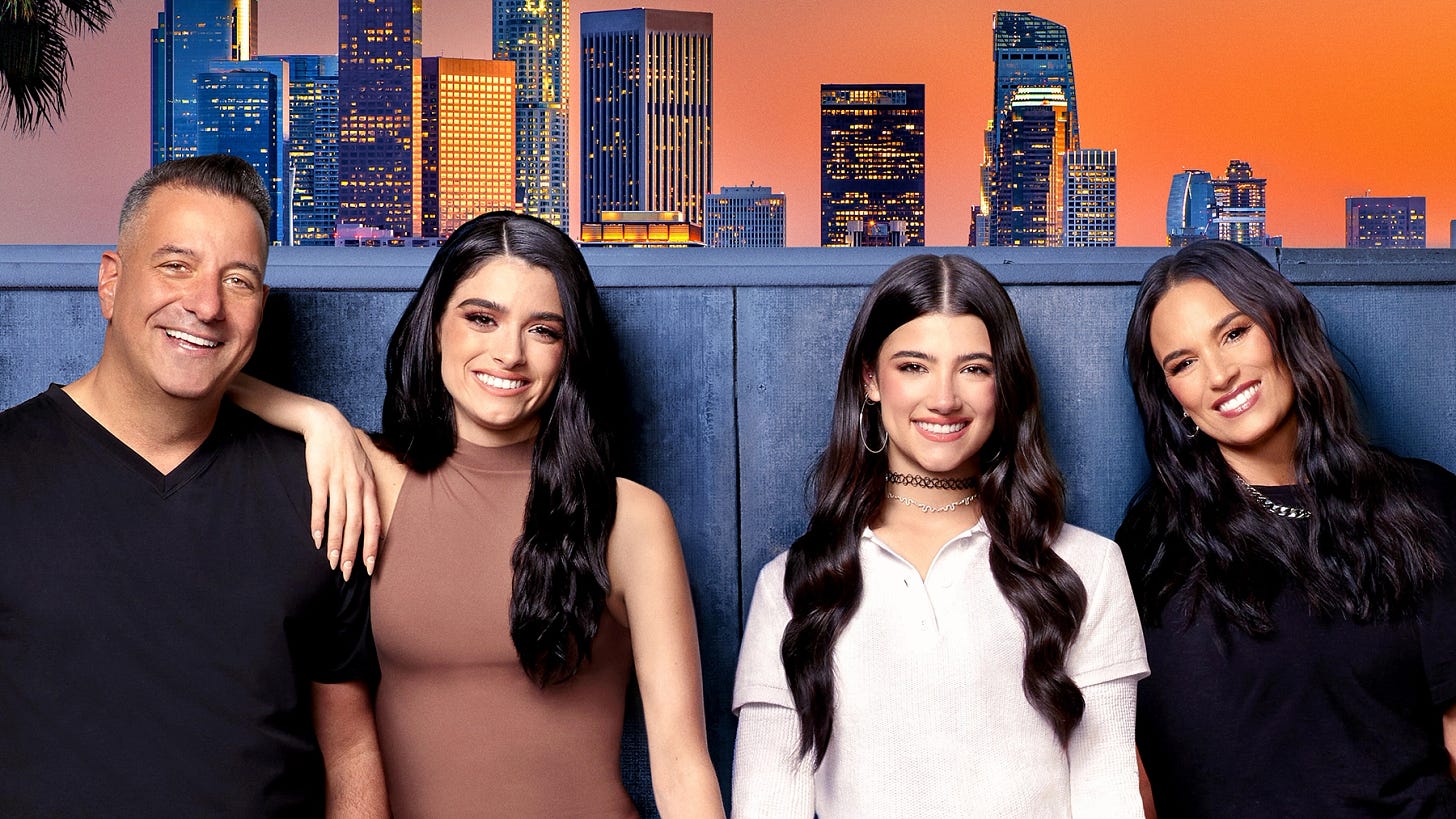Pop Culture Confessions: The D'Amelio Show
A new series about the things I'm not sure I should like.
I don’t necessarily buy into the idea that we should feel compelled to classify any of our pop culture interests as “guilty pleasures.” If watching, reading, or listening to something helps you feel more relaxed, makes you laugh, or simply boosts your good vibes in a world that too often lacks them, why should you have to feel guilty about it? By the same token, if you genuinely feel guilty about consuming certain content because of its source (or for any other reason), can you really take pleasure in it?
Ergo (fancy!), I think we should cut ourselves some slack for the pop culture that is too often written off as guilty pleasure material. I, admittedly, have a history of engaging with a lot of pop culture that plenty of people would say falls into this category.
For the most part, I’ve moved past the “guilty pleasure” thing, but that doesn’t mean that my feelings about some of the things I like aren’t complicated. With so much out there to consume, it’s hard to know why we tend to land on or gravitate toward what we do. And I think it can be fun to unpack these questions (which is probably a big part of why I’ve been hosting my podcast for the last five years)!
All of this brings me to a new series I’ve been dreaming up…
Pop Culture Confessions
In each installment of Pop Culture Confessions, I’ll break down a different piece of media or pop culture that I’m loving, but also feeling kind of weird about. I’ll give myself the space to fangirl while also being transparent about my ambivalence and how I might be able to untangle it.
So let’s call this a no-judgement zone and get to confessing, shall we?
Up first for Pop Culture Confessions is The D’Amelio Show
The D’Amelio Show premiered on Hulu in 2021. Its third season is currently airing on the streamer, with new episodes dropping every week.
I started watching shortly after the second season went live, having literally zero prior knowledge of the D’Amelio family. My Hulu algorithm seemed confident that I would enjoy the watch (yes, of course, they’re giving their original content a little extra nudge—and I guess it worked here), and since I was looking for something new to use as what I like to call a “background noise show,” I gave it a shot. I binge-watched the whole first season, then caught up with the second and watched the rest of the episodes as they were released in real-time. I’m now doing the same with the third season.
There are a lot of reasons that it makes no sense for me to be a fan of this show…
As I mentioned above, I knew absolutely nothing about this family when I started watching the show. I’d heard of Charli D’Amelio, but that was about it. I have the TikTok app, but I rarely use it.
As my last point might suggest, I am probably not the target audience for the show. I’m sure its creators imagined it would appeal most to fans of the D’Amelios and/or Gen Z-ers who are a little more plugged into what’s cool on TikTok.
It’s not an objectively good show… at least not according to the internet. The average rating on Google is 2.8 stars. This hasn’t stopped me from watching many a mediocre reality show, but I just feel like I need to be fully transparent here.
I totally hear—and agree with—the argument that the D’Amelios are kind of a prime example of the privilege that’s rampant in influencer culture and, therefore, in our 2023 lives. The D’Amelios started off as a white, conventionally attractive family that—as far as I can tell—had access to at least some means to support their daughters’ interests in music, dance, etc. These factors afforded them opportunities that many other families didn’t have, and while it’s clear they’re ambitious and have managed to capitalize on those opportunities in interesting ways, we can’t ignore the issues with this pipeline.
Like all influencers and public figures, the D’Amelios do not have a perfect behavioral record. I’m a big fan of accountability culture and not so much of cancel culture—especially where teenagers are concerned—but, again, I’m going for transparency here.
I appreciate the open dialogue the show promotes about mental health (more on that below), but there are moments that it feels slightly manipulative and over-produced. It’s also hard to ignore the fact that Charli and Dixie’s mental health is impacted by their visibility on social media and elsewhere. The fact that this show exists at all—and that people like me continue to watch it—likely feeds a vicious cycle that provides so-called “content” for future episodes.
In spite of all of this, I found myself genuinely excited to see new episodes hitting my Hulu feed.
Here’s why I can’t help but like it…
Keep reading with a 7-day free trial
Subscribe to Getting It Alli Together to keep reading this post and get 7 days of free access to the full post archives.





